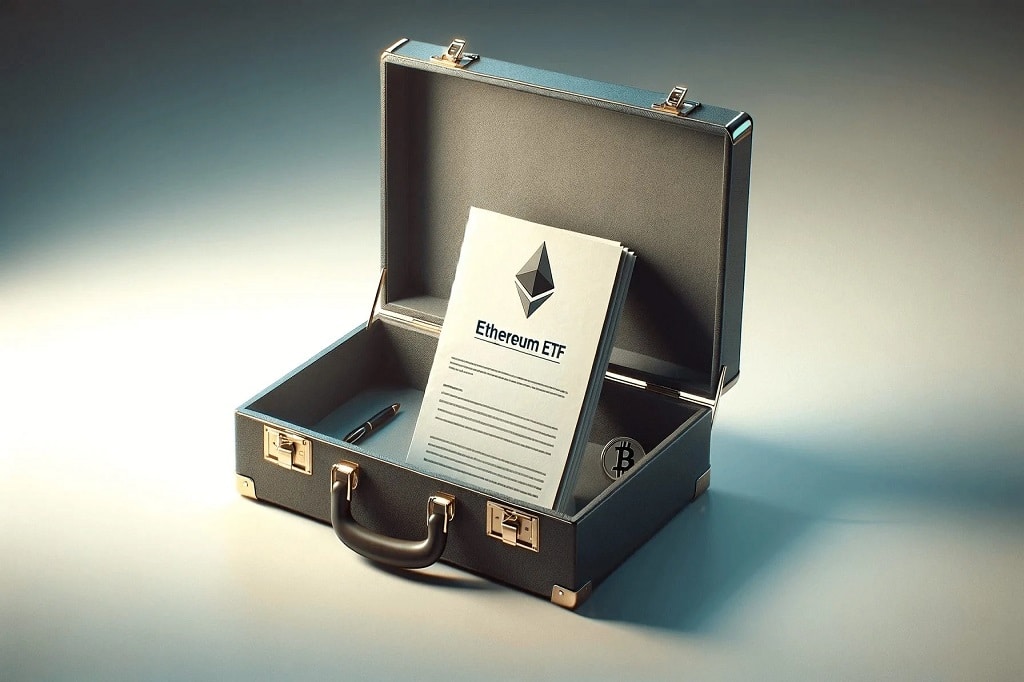SEC Approval on Ethereum ETFs: What Could Happen to ETH’s Price?
-
 Bookmakers Review
Bookmakers Review
- November 28, 2024

Are you ready to go to the moon? The price of Ethereum could skyrocket if the SEC approves those long-awaited spot Ethereum ETFs.
Waiting for the Encore
It’s got to happen sometime.
Now that the SEC has approved “spot” Bitcoin ETFs in the United States, many people at the crypto betting sites must wait for the other shoe to drop: spot Ethereum ETFs. After the SEC announced their approval of spot Bitcoin ETFs on January 10, the price of Ethereum jumped roughly 10-12%.
Then it went back down again. But as we go to press, Ethereum sits at US$2,381.45, up nearly 9% over the past week – and back to where it was on January 10, just before the spot Bitcoin ETF announcement.
Investors seem confident that the SEC will give the same approval for Ethereum ETFs – maybe on May 23, if the people at Standard Chartered Bank are correct.
How high can Ethereum get? Standard Chartered thinks the price could shoot up over $4,000 if spot Ethereum ETFs get regulatory approval. But before you open up those digital wallets, let’s take a closer look at what’s happening on the ground.
Why May 23 For Ethereum ETFs?
When the SEC made their Bitcoin ETF ruling on January 10, that was their deadline day for accepting the applications from Cathie Wood’s ARK Invest team and 21Shares.
Those same entities have combined to apply for an ARK 21Shares spot Ethereum ETF; this time, the deadline for SEC approval is May 23.
There’s a second group hoping to get approved on that date: VanEck. You can already buy the VanEck Ethereum Strategy ETF (EFUT), which launched on October 3 last year – one day after the SEC gave the green light to futures-based Ethereum ETFs. Now VanEck hopes to get approval for spot Ethereum ETFs as well.
Why Will The Price Go Up?
The same reason the price for Bitcoin (and Ethereum) went up after spot Bitcoin ETFs were approved: more people will be getting into cryptocurrency.
Ethereum ETFs let you invest in crypto the same way you might buy shares in Apple or Microsoft. You don’t have to hold any crypto yourself, and you don’t have to deal with any crypto exchanges.
That’s a big deal for a lot of people.
Since you’re reading this, chances are you’re more savvy about crypto than most; you know the pros and cons of using regulated crypto exchanges rather than peer-to-peer networks and all that. But there are plenty of others who don’t know crypto from a hole in the ground. Ethereum ETFs will lower the bar for these people to enter the market and get those coins moving around.
Spot Ethereum ETFs will be even more effective in doing this than futures-based ETFs. With the latter, the company you’re investing in holds futures contracts for Ethereum; with the former, they’re holding onto the coin itself. The price of those shares will rise and fall more closely with the price of Ethereum, making spot ETFs easier for investors to wrap their heads around.
Will Ethereum Hit $4,000?
That’s what Standard Chartered is suggesting. Their projections are based on what happened with the price of Bitcoin after spot Bitcoin ETFs were given the nod – but with some notable differences.
The biggest difference is with the volatility.
Right after those Bitcoin ETFs were approved, the price of Bitcoin fell up to 20%, partly because investors had already priced in the SEC’s ruling – and partly because they were getting rid of their holdings in Grayscale Bitcoin Trust (GBTC) so they could re-invest.
The situation isn’t quite the same this time.
Grayscale has an Ethereum trust (ETHE) as well, but it doesn’t have the same market cap as the GBTC product, so the sell-off shouldn’t be as dramatic. The fact that both ARK 21Shares and VanEx are up for approval should also cushion the blow.
All well and good, but that approval has to happen first.
JPMorgan thinks it’s a coin flip at best whether the SEC will make this ruling by the end of May. However, they do see it coming, especially after the SEC didn’t touch on Ethereum in its ongoing lawsuit against various crypto exchanges. That means the SEC is more likely to deem Ethereum a commodity rather than a security, just like they did with Bitcoin.
There is one fly in the ointment.
In 2022, Ethereum switched its consensus mechanism from proof-of-work to proof-of-stake; this gets rid of those energy-sapping banks of computers that are still used to mine Bitcoin.
However, proof-of-stake does make Ethereum look less like Bitcoin, which might scare the SEC into putting Ethereum in the same securities bucket – and therefore subject to securities law – as all those other alt-coins on the market.
We’ll see how they respond on May 23.











